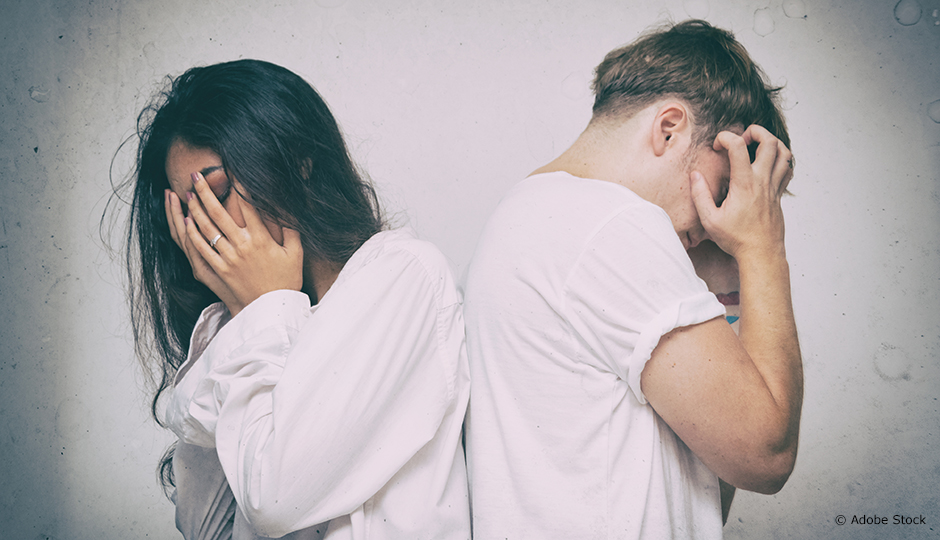Depression has two faces: one masculine and the other feminine. Indeed, the work led by Benoit Labonté, professor in the Department of Psychiatry and Neuroscience of the Faculty of Medicine at Université Laval, researcher at the CERVO Brain Research Centre and Pfizer–Institut universitaire en santé mentale de Québec research chair, suggests that, from a molecular perspective, depression is actually two different diseases with the same name. It should therefore come as no surprise that the effectiveness of current antidepressants is different in men and women.
Only 5 to 10% of the nerve cell genes that were affected by depression were shared between men and women!
Professor Labonté’s team compared the biological bases of depression in both sexes by studying mouse models that reproduced certain aspects of mood disorders in humans and analyzing human samples from the Brain Bank of the Douglas Mental Health University Institute in Montréal. The researchers were able to identify specific genes that were either activated or repressed in animal and human subjects suffering from depression, including genetic material common to both species. They then took a closer look at these genes and the neurons of 13 men and 13 women who had been living with a depressive disorder at the time of their death and compared them to 22 healthy post-mortem brains. Labonté was taken aback by the results: of the human nerve cell genes that were affected by depression, only 5 to 10% were shared between men and women! Interestingly, sex-based differences were also observed in the brains of stressed rats. Depression therefore develops differently in males and females.
All the genes identified as part of the research project are potential therapeutic targets that may be used to provide personalized treatments for depression. For example, Benoit Labonté observed that the gene sets that regulate neuronal activity were affected differently in male and female mice under stress. The challenge is now to control the behaviours of these genes with medication administered according to the sex of the patient to reduce his or her susceptibility to stress and create a new roadblock for depression with the added benefit of causing fewer side effects and being more effective.




